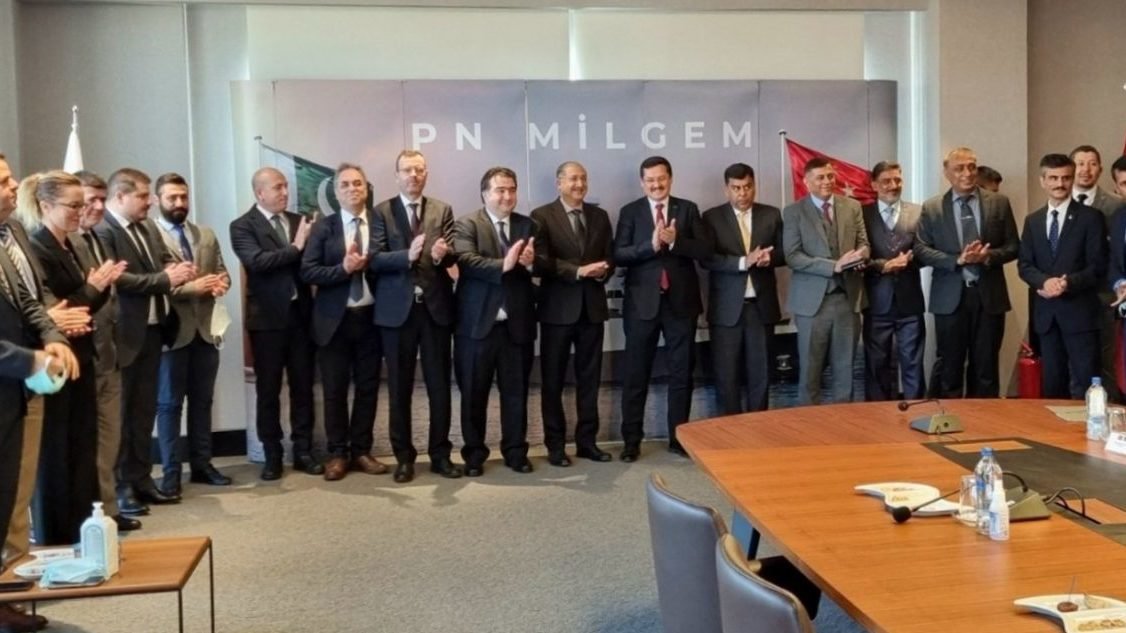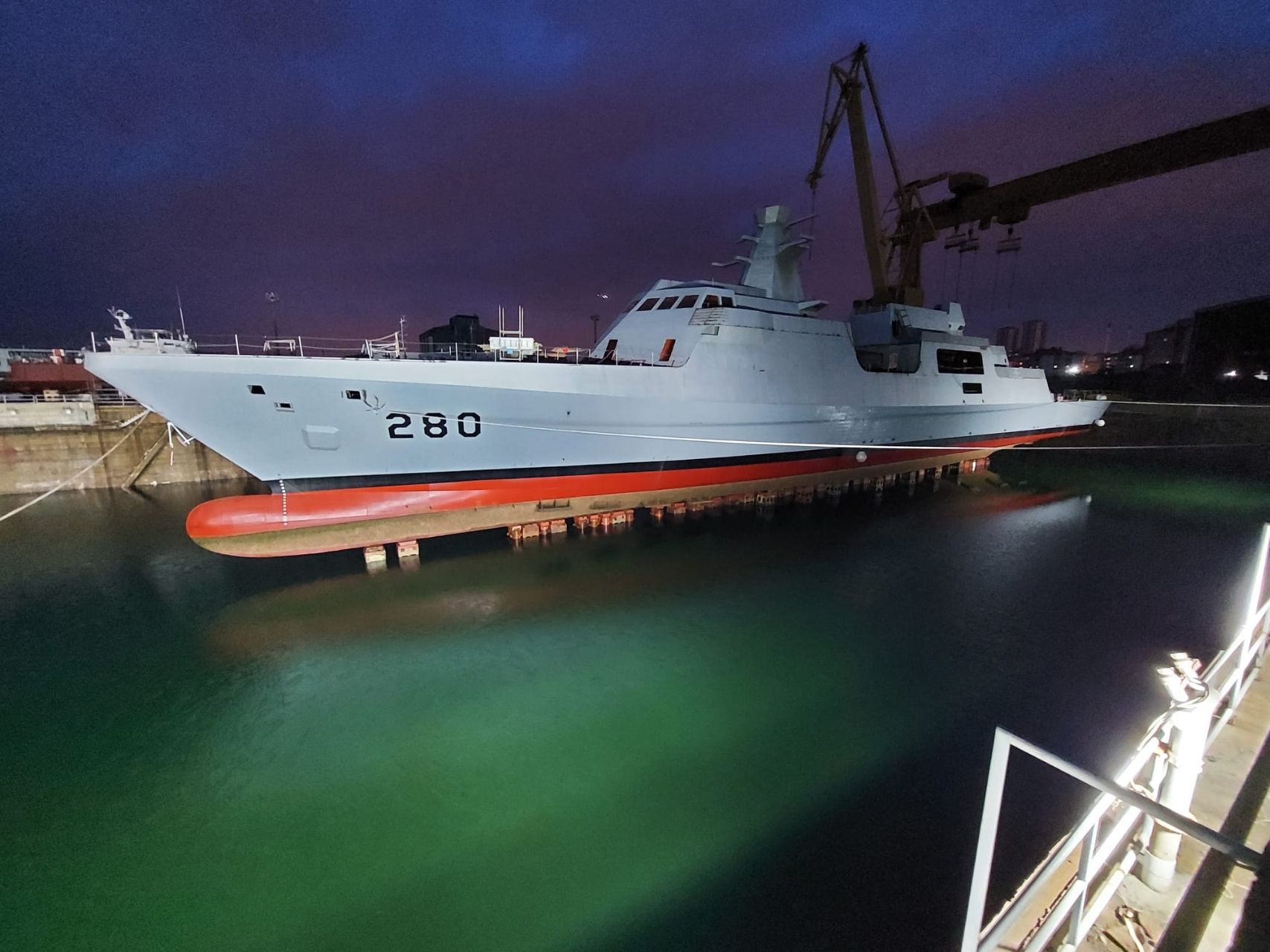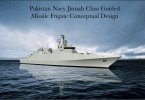very unlikelyIt seems that babur will be inducted to PN by this year.
How to install the app on iOS
Follow along with the video below to see how to install our site as a web app on your home screen.
Note: This feature may not be available in some browsers.
You are using an out of date browser. It may not display this or other websites correctly.
You should upgrade or use an alternative browser.
You should upgrade or use an alternative browser.
Pakistan-Turkey 4 Milgem Ada Class Corvettes Contract - Construction started
- Thread starter BHarwana
- Start date
JawadKKhan
BANNED

- Joined
- Jun 8, 2014
- Messages
- 313
- Reaction score
- 1
- Country
- Location
Nope. if everything goes on schedule then deliveries are expected between 2023 to 2025. IMO, mid of 2023 for first ship at best. But yes chinese ship industry is giant, we will have 2 more tughrils and perhaps 1 hangoor.It seems that babur will be inducted to PN by this year. Along with two type 54ap. Three new frigates in one year ,. Good addition to PN. I am also assuming that in 2022 first of the hangout will join PN
A very good fleet upgrade by any means
ghazi52
PDF THINK TANK: ANALYST

- Joined
- Mar 21, 2007
- Messages
- 104,413
- Reaction score
- 106
- Country
- Location
The second ship of the Babur class, PNS Khaibar is currently under construction in Istanbul, and two more ships, PNS Badr and Tariq are being constructed in Karachi. PNS Badr is expected to be launched in mid-summer 2022.

araz
PDF THINK TANK: CONSULTANT

- Joined
- Jun 14, 2006
- Messages
- 9,291
- Reaction score
- 81
It does not need to be any faster than what it is. You develop your industry based on the demand. The reason the Chinese are so quick is because their navy has a huge requirement for build up and all of their produce is mostly absorbed locally. No one can produce ships as quickly as the Chinese because of this demand. If the same demand was there is South Korea they would also be producing the ships at this rate.Turkish ship industry is very slow,
A
Ibr0kEmYrAz0r
FULL MEMBER

- Joined
- Apr 10, 2010
- Messages
- 229
- Reaction score
- 0
There are transferable ship-building techniques/skills/people, etc. that countries can utilise in naval ship-building industry from their civilian/commercial side. And since the three East Asian countries (China/S. Korea/Japan) accounted for over 95% of the global commericial vessels production by deadweight, they are in a huge advantage to utilise those resources.Turkish ship industry is very slow,
Techniques such as "block construction", which makes considerable use of prefabricated sections with pre-installed equipment/pipes/electrical cables, to minimize the effort needed to assemble or install components later on deep within the hull once it is welded together.
By building entire multi-deck segments of the hull/superstructure elsewhere in the yard, then transported to the building dock or slipway, then lifted into place using a gantry style crane which has a lift capacity of 1,000+ tonnes, will be a far more efficient and quick way to build. (Mind you, some of these gantry style cranes having a lift capacity of 4,000+ tonnes, are used to build aircraft carriers). Those multi-deck segments are welded together by the laser hybrid welding technique. You really need to be at the top of your game to pump out ships from the yards like crazy.
Last edited:
dBSPL
SENIOR MEMBER

- Joined
- Mar 2, 2018
- Messages
- 7,656
- Reaction score
- 28
- Country
- Location
Although Milgem ADA class corvettes are 4 sister ships in the same class, there is a significant localization difference (during the system design and first construction), especially between the 1st and 3rd,4th ships. So, Could the MILGEM program actually aim to acquire a technological competence and elimination of foreign dependency for the Turkish naval industry? At the beginning of the MILGEM's first ship project, locality rate was around 25-30%. We have now reached the level of 75% with TCG Istanbul. For the TF-2000 and other further MILGEM frigates, it is aimed to exceed 80%.
Could we be missing the fact that the integration of newly developed systems with ships is the first time? Could we be missing the fact that these shipbuilding schedules and subsequent testing and evaluation processes are proceeding with a schedule in line with the navy's own inventory and a resource management within the budget allocated to it? Or, does anyone know here which import items of MILGEM program has had supply problems with after they started ship production? Or more specifically, after a private shipyard won the tender for 3 MILGEM class corvettes in 2013 (3 ships were to be delivered in 36 months) and despite having the physical-technical competence, does anyone know for what political reasons the tender was cancelled? I'm afraid you need a little more than wikipedia for answers to these kinds of questions.
If we are talking about a ship that has all engineering packages completed, ship classification and certification completed and mass production process started... If there is a smooth cash flow, unhindered and timely delivery of subsystems; there is at least 6-7 shipyards in Turkiye that could launch a corvette every 6 months which have the enough processing capacity/tech and technical infrastructure. When there is no problem in these areas, or have hurry for some reason: SSB anounced that Turkish navy will it put 4 I-class frigates into service by 2025? As similiar example, Ukrainian corvette be delivered to Ukranian navy in this year...
Could we be missing the fact that the integration of newly developed systems with ships is the first time? Could we be missing the fact that these shipbuilding schedules and subsequent testing and evaluation processes are proceeding with a schedule in line with the navy's own inventory and a resource management within the budget allocated to it? Or, does anyone know here which import items of MILGEM program has had supply problems with after they started ship production? Or more specifically, after a private shipyard won the tender for 3 MILGEM class corvettes in 2013 (3 ships were to be delivered in 36 months) and despite having the physical-technical competence, does anyone know for what political reasons the tender was cancelled? I'm afraid you need a little more than wikipedia for answers to these kinds of questions.
If we are talking about a ship that has all engineering packages completed, ship classification and certification completed and mass production process started... If there is a smooth cash flow, unhindered and timely delivery of subsystems; there is at least 6-7 shipyards in Turkiye that could launch a corvette every 6 months which have the enough processing capacity/tech and technical infrastructure. When there is no problem in these areas, or have hurry for some reason: SSB anounced that Turkish navy will it put 4 I-class frigates into service by 2025? As similiar example, Ukrainian corvette be delivered to Ukranian navy in this year...
Super Falcon
ELITE MEMBER

- Joined
- Jul 3, 2008
- Messages
- 15,815
- Reaction score
- -8
- Country
- Location
Pros and cons of these corvetes
Super Falcon
ELITE MEMBER

- Joined
- Jul 3, 2008
- Messages
- 15,815
- Reaction score
- -8
- Country
- Location
Pakistan should focus on 7000 ton destroyers collabration with turkey
dBSPL
SENIOR MEMBER

- Joined
- Mar 2, 2018
- Messages
- 7,656
- Reaction score
- 28
- Country
- Location
PN MİLGEM 3rd Project Review Meeting was held at ITK ASFAT Building with the participation of the 2nd Chief of Pakistan Navy Vice Admiral Imran Ahmed and the accompanying delegation. Despite the pandemic, it was confirmed that the project was progressing on its schedule and that there was no disruption in the planning.


Joe Shearer
PROFESSIONAL

- Joined
- Apr 19, 2009
- Messages
- 27,490
- Reaction score
- 162
- Country
- Location
For a corvette?This is a good speed for a ship of this size.
aziqbal
SENIOR MEMBER

- Joined
- Aug 26, 2010
- Messages
- 7,388
- Reaction score
- -10
- Country
- Location
Although Milgem ADA class corvettes are 4 sister ships in the same class, there is a significant localization difference (during the system design and first construction), especially between the 1st and 3rd,4th ships. So, Could the MILGEM program actually aim to acquire a technological competence and elimination of foreign dependency for the Turkish naval industry? At the beginning of the MILGEM's first ship project, locality rate was around 25-30%. We have now reached the level of 75% with TCG Istanbul. For the TF-2000 and other further MILGEM frigates, it is aimed to exceed 80%.
Could we be missing the fact that the integration of newly developed systems with ships is the first time? Could we be missing the fact that these shipbuilding schedules and subsequent testing and evaluation processes are proceeding with a schedule in line with the navy's own inventory and a resource management within the budget allocated to it? Or, does anyone know here which import items of MILGEM program has had supply problems with after they started ship production? Or more specifically, after a private shipyard won the tender for 3 MILGEM class corvettes in 2013 (3 ships were to be delivered in 36 months) and despite having the physical-technical competence, does anyone know for what political reasons the tender was cancelled? I'm afraid you need a little more than wikipedia for answers to these kinds of questions.
If we are talking about a ship that has all engineering packages completed, ship classification and certification completed and mass production process started... If there is a smooth cash flow, unhindered and timely delivery of subsystems; there is at least 6-7 shipyards in Turkiye that could launch a corvette every 6 months which have the enough processing capacity/tech and technical infrastructure. When there is no problem in these areas, or have hurry for some reason: SSB anounced that Turkish navy will it put 4 I-class frigates into service by 2025? As similiar example, Ukrainian corvette be delivered to Ukranian navy in this year...
the hard graft is done from 2005-2020 these 15 years allowed Turkey to work out how to build warships
they built 1 and then they found out the mistake they were making and it looks years of blood, sweat and tears + added political issues
now that experience is in the bag and we are seeing a break neck speed of warship construction both for Turkey + Exporters
I was very worried at the start it would take Turkey another 15 years to build 4 x MILGEM for Pakistan and I would go on forever and even strain our friendship
clearly I was wrong and Turkey has shown what a great player it is in the warship business
Similar threads
- Replies
- 0
- Views
- 2K
- Replies
- 1
- Views
- 609
- Replies
- 3
- Views
- 495
- Replies
- 0
- Views
- 216
- Article
- Replies
- 0
- Views
- 214





